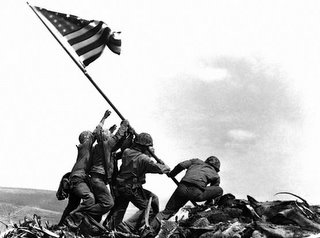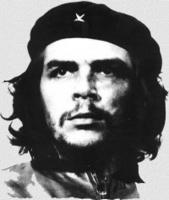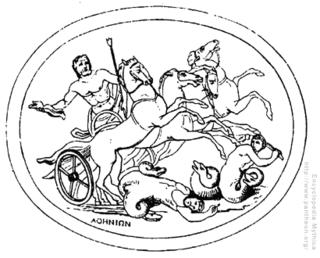
With a media blitz Bill Clinton moves to shore up Hillary's unfolding bid to become a presidential contender.
As usual, he stakes out a centrist position, breaking with his party's left, especially on Iraq. As does Hillary, he breaks with some Democrats' calls for quick Iraq withdrawal.
Instead he swings to qualified support for the emerging Bush doctrine, picking up on Bush's victory speech and the 35 page
document outlining American strategy for victory in Iraq.
That strategy echoes in my ears -- for it is an agressive "let's win" version of the "Gavin Enclave Plan" advocated for Vietnam way back in the mid Sixties by famed World War II paratroop general James M. Gavin. He became an early critic of the Vietnam war, broke with government doctrine and retired early.
Gavin's view was that to win in Vietnam required escalation and war with China. Instead the US should withdraw to strategic enclaves, scale down fighting, then, if possible, negotiate. The Gavin plan was rejected (see below) for fear it would conceed the bulk of South Vietnam to communist rule.
Today's Clinton doctrine is an aggressive Gavin plan retooled "to win" -- whereas the original Gavin plan (see below) was rejected for fear it would NOT win.
Under the emerging Clinton version of the Gavin plan, the US would gradually withdraw to non-urban Iraq areas, reduce its occupying "footprint," bring home some troops, and thus reduce US casualties. It would hopefully reduce anti-Americanism in Iraq -- but allow U.S. forces to sally forth in agressive raids from American bases targetted especially at Al Qaeda -- thus allowing for a long term, less costly American presence.
(Yet since this was written, this doctrine for gradual withdrawal lies under a dark cloud, rejected by Bush, it would seem. For increasing sectarian violence means such an approach could lead to growing chaos. Indeed the Administration is beefing up deployments in Bagdad and elsewhere, putting off plans for withdrawal and keeping longer in combat troops who were slated for a return home,
June 2007)
The plan would back up the new Iraq government with its weak police and military -- while retaining American public support for a long term presence in Iraq. All with a minimum of American casualties.
Of course Gavin saw his plan as a way out of an unwinnable war, while the Bush/ Clinton approach is aimed at a prolonged presence with disagreements on how to do it.
To maintain America's influence in Iraq, to block Iran, protect Israel -- and keep American troops close enough to strike at any growing terrorist bases in Iraq. Thus to keep Iraq from becoming the kind of terrorist sanctuary that Taliban ruled Afghanistan was for Al Qaeda.
The Clinton agenda is, of course, to smooth Hillary's path, to let her seem tough, but advocating policies which will reduce American casualties.
****************
On the Johnson Administration's rejection of the Gavin Plan, see:
Foreign Relations, 1964-1968, Volume V, Vietnam 1967
Released by the Office of the Historian
Documents 374-387The Wise Men's Meeting of November 1 and Planning To Stay the Course, November-December, 1967
II. Possible Alternative Courses of Action
George Ball said that no one in the group thinks we should get out of Vietnam, and no one gives propriety to the Gavin or Galbraith enclave theory
James Gavin, a former General and Ambassador, advocated the enclave theory of withdrawing to fortified areas, most notably during hearings before the Senate Foreign Relations Committee in February 1966. Former Ambassador John K. Galbraith's similar plan was made public in late June 1967.
****************
On the famous paratrooper himself, see
James Gavin:
The postwar military was not kind to Maj Gen James Gavin. He became the strategic planner for the postwar Army. While at home on the battlefield, he was not comfortable in Pentagon politics. His differences with top Army leadership ultimately led to his decision to retire.
Gavin continued to be influential in civilian life. He became chairman of the board of Arthur D. Little Company, advisor to President John F. Kennedy, and United States ambassador to France under the Kennedy administration.
"Born in 1907, James Gavin was the son of an unwed Irish immigrant. He was placed in a New York City orphanage at the age of one or two. He was eventually adopted by Martin and Mary Gavin, a Pennsylvania coal-mining family. His youth taught him the discipline and hard work that would pay dividends throughout his life. He enlisted in the US Army at age 17. Showing promise, he was selected for admittance to West Point."
"Gen. Gavin came to be known as the "jumping general" because he parachuted with combat troops during World War II. ...While a paratrooper, he led assaults on Sicily and on Salerno Bay, Italy, in 1943, reaching the rank of brigadier general, and jumped with the parachute assault section of the division on the first night of the Normandy Invasion (June 5-6, 1944). Elements of Gavin's section took the town of Sainte-Mère-Église and guarded river crossings on the flank of the Utah Beach landing area. Gavin was later made major general at age 37, the youngest major general since Gen. George Armstrong Custer. He commanded the 82nd Airborne during operations in The Netherlands and his division later fought in Germany until the German army surrendered in 1945."
Gen. James Gavin died in 1990.
 It sure seemed strange.
It sure seemed strange.






